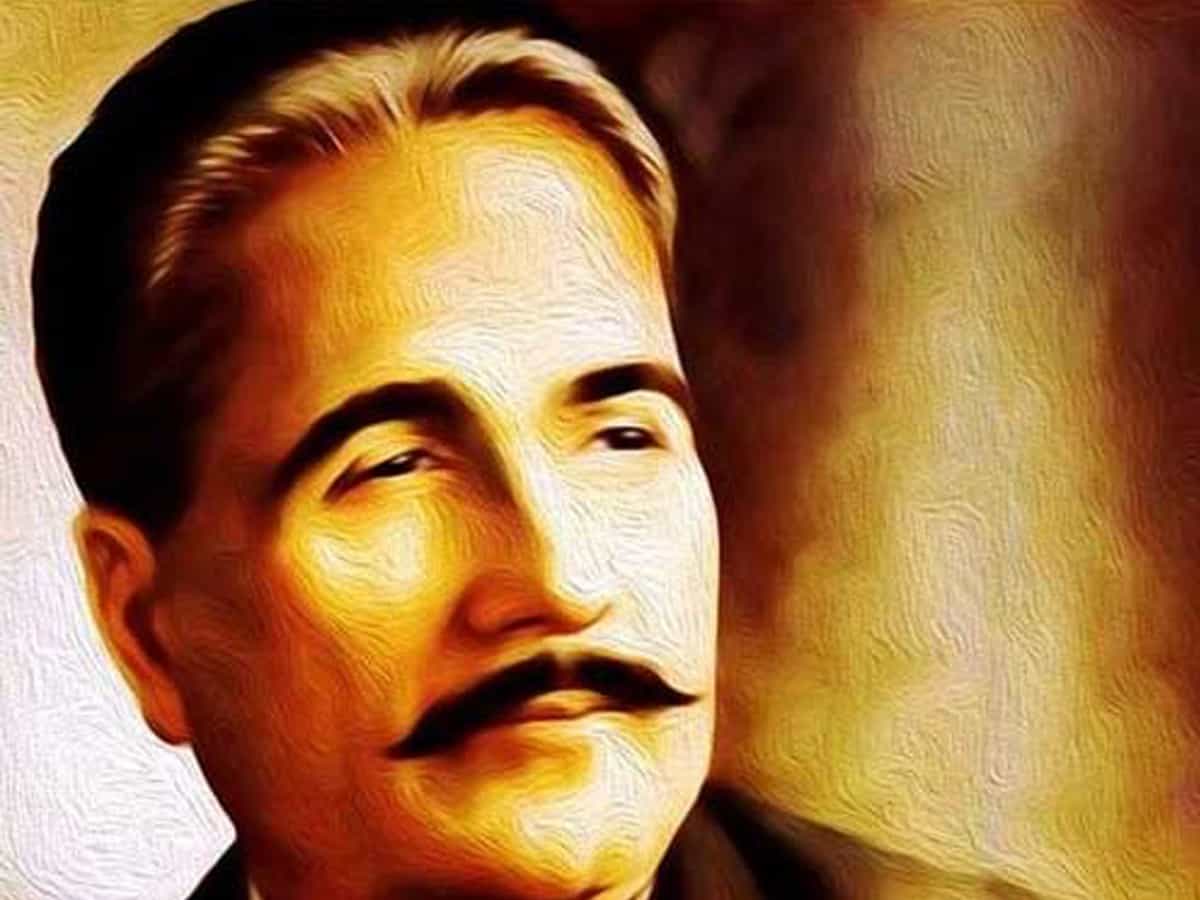

Recently I was watching a very short video. the speaker was talking about one of the couplets from Zarb-e-Kaleem, a long poem written by Allama Iqbal.
It prompted me to look into it. No sooner I scratched the surface a whiff of Iqbal’s spiritual life touched my inner being and coaxed me to find the essence of this poetry.
I started to shake the tree of Iqbal’s life and the flowers of his mystical and lyrical journey dropped in my lap. One by one I picked the flowers and weaved a festoon with a thread of his rainbow color concepts. His poetic compositions are rejuvenating and thought-provoking that carry the beautiful shades of humanity, peace, divinity, love of God, Holy Prophet and the Holy Quran.
The literal translation of Zarb-e-Kaleem is the strike of Moses’ Staff, but the conceptual meaning is “A Declaration of War Against the Present Times.” He composed Zarb-e-Kaleem in 1936 during his stay at Sheesh Mahal, when he went to Bhopal at the invitation of Nawab Hamidullah Khan. The poetry Zarb-e-Kaleem (Satan to his political offspring) is his manifesto that was meant to rescue the Muslims from the harms brought on by modern civilization, just as Moses had rescued the Israelites.
The poetry is nothing but Iqbal’s prediction about the present-time and political upheaval that changes the façade of India, Afghanistan, Europe, Saudi Arabia and Yemen. It’s mind-boggling how he predicts the future in a lyrical form without going wrong. Did he have a supernatural intuition that guided him to communicate the events in store? Was he getting some messages in his dream to write or warn the coming generation?
There were two incidents in his life that compel us to think that some unseen power was guiding him. The first incident was narrated by Allama Iqbal’s daughter Munira Salahuddin and his grandson Iqbal Salahuddin.
“Iqbal was a devotee of the great Turkish scholar Maulana Jalal Uddin Rumi. Iqbal describes himself as Mureed-e-Hindi (devotee from India) and Maulana as Pir-e-Rumi. The family of Allama Iqbal possesses a letter written by him to his friend Maharaja Kishan Prasad, Prime Minister to Nizam of Hyderabad when he was writing Asrar-e-Khudi (The Secrets of the Self) — published in Persian in 1915 and his first philosophical poetry book.
The letter contains a lot of secret conversations that happened between Allama Iqbal and Maulana Rumi in his imagination. “He (Iqbal) had requested his friend Prasad to burn a specific part of the letter because he wanted to keep his imaginative conversations with Maulana a secret. But he (Prasad) didn’t burn it and it is on record. Iqbal has also mentioned where he saw Rumi in his dream and got the guidance for writing Masnavi,”
The actual narrator of the second incident is Allama Iqbal’s domestic servant Ali Bakhsh.
“One night Iqbal called me into his room. It was quite late; I saw that a very pious man with a bright face was sitting on the sofa and Iqbal was on the floor pressing his legs. I had never seen that guest before in my life. Iqbal asked me to bring three glasses of sweet lassi. I was astonished because it was impossible to find it at that time. I left the house and saw another pious man selling milk and yogurt. I went there and asked him for three glasses of sweet lassi. He gave it to me in a bowl but when I tried to pay him, he plainly refused and said, ‘It is ok between me and Iqbal.’ Later, I gave it to Iqbal and he filled the first glass of lassi and presented it to the pious guest. After the guest drank it Iqbal presented him with another glass. But when he presented him with a third glass he refused to take it and said, ‘You should drink too.’ Then Iqbal asked me to leave. After some time, he called me again and asked me to accompany the guest to the door. The pious guest was ahead of me and as I reached the gate, I saw the guest disappear on the road. When I looked around, neither there was any shop, nor the pious shopkeeper. I was shocked. I asked Iqbal about the two pious persons but he refused to tell me. Nonetheless, I kept on asking him for the next few days. At last he told me that the pious guest sitting in the room was Hazrat Khwaja Moin ud Din Chishti and the pious shopkeeper was Hazrat Ali Hajveri known as Daata Ganj Bakhsh. But he forbade me from telling it to anyone else.” Dr. Javed Iqbal son of Allama Iqbal also verified that Ali Bakhsh also told him about it.
These two incidents tell that Iqbal was not a mere poet, but was a spiritual man inclined towards mysticism and a model of a wide range of social, cultural, political and religious phenomena.
